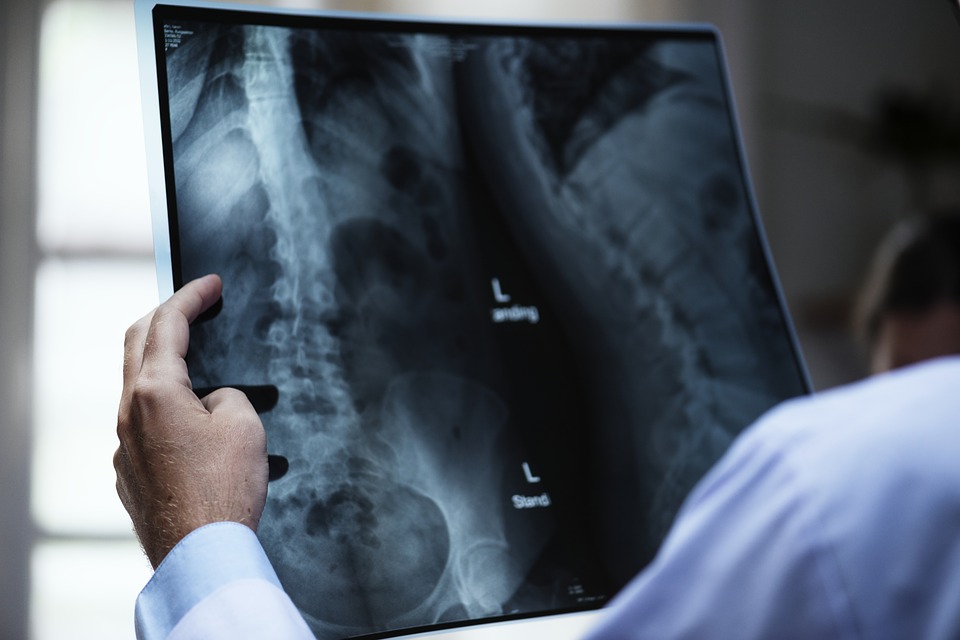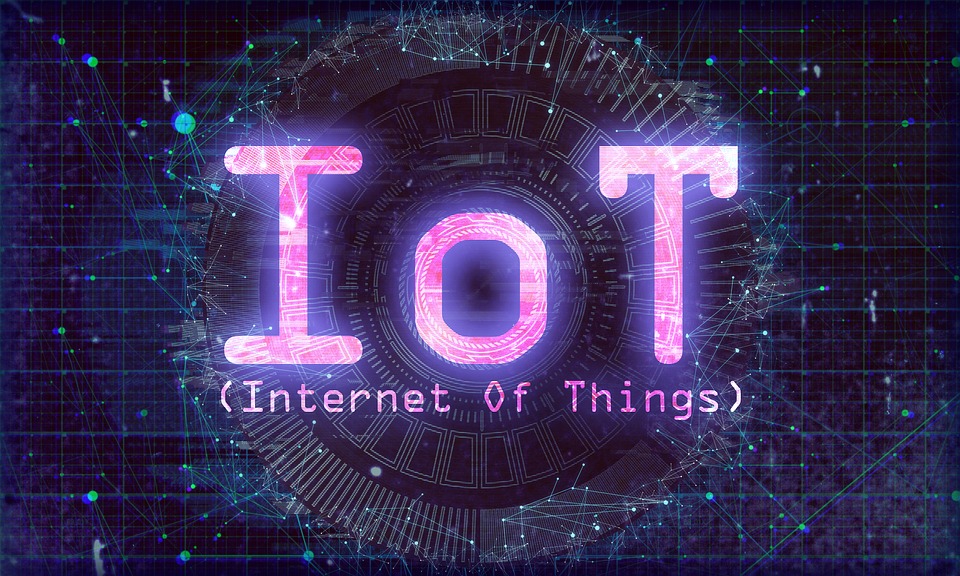The IoT is considered as the technology that is going to make an enormous difference,
transforming all sectors of activity and the personal lives of its users in the coming years, according to the report “Research of the Internet of Things business models in Portugal.”
The Internet of Things (IoT) market in Portugal has enormous growth potential, and the main industries and applications that can benefit include retail, healthcare, smart cities, and energy, among others.
The study by Nova Information Management School attempts to understand how the IoT makes an impact socially and economically in the market, and how it can change the way companies work in Portugal, including its different applications.
Here we take a look at IoT business models and how Portugal can leverage these across industries as well as suggestions for Portuguese companies that are on the fence about IoT adoption.
1) IoT in Retail

Across the board, the retail sector is by far the most advanced when it comes to IoT implementation, according to the report.
Microsoft Portugal engineer João Almeida stated that “without a doubt the retail sector is the one in a more advanced stage, besides there are projects being currently implemented,” and that “the retail sector is one of the areas where those types of business models are easier and more logical to identify and adopt.”
Similarly, Sensefinity CEO Orlando Remédios remarked, “Retail is the main sector demanding these [IoT] types of solutions.”
For IoT business models that Portugal can leverage, Microsoft utilizes the Platform as a Service (PaaS) model in the IoT scenario as it provides “a platform that facilitates the
integration between every device, allows for maintenance, and has a very critical point in this technology, which is security.”
A PaaS “provides the freedom to implement the most diverse IoT projects and also because this technology is going to be implemented in every sector and the projects will also be different from each other.”
2) IoT in Healthcare

Healthcare is a major industry undergoing huge digital transformation with the IoT.
IoT applications focused on the human body are divided in to two categories: human health and fitness and productivity growth.
The applications can also help professionals (doctors, trainers, among others) with the decision-making process and health monitoring for patients, athletes and citizens in general.
Portugal can look to business models from companies abroad for health monitoring. For example, Abartys Health in Puerto Rico has a function where patients on the platform can link their Fitbit data, so it is instantly shared with their medical providers as well as their insurance companies.
IoT in healthcare can have an impact from $160 billion to nearly $1.5 trillion dollars per year, being that the majority of this value is from the IoT devices, which are applied to monitoring and treating illnesses, particularly chronic diseases.
Furthermore, the report estimates that IoT applications may decrease the costs of care for chronic patients by 10 percent to 15 percent.
In order to improve and monitor wellness, wearable technology has been used, chiefly in more developed countries with a high level of adhesion. This technology has an estimation of increasing more than 60 percent per year.
3) IoT in Smart Cities

While retail may be the most established IoT application, smart cities may have the most demand.
Public infrastructures in Portugal can leverage IoT business models in different smart city domains such as smart transportation, smart grids, and utilities.
One different approach in which Portugal can be successful while leading with IoT for smart cities is in the development of hardware technology for devices that collect information and data for specific applications, according to the report.
Esri Business Director in Portugal, Nuno Pereira, noted the exponential increase of the utilization and synergies between GIS and IoT sensors as a case of success, and it already exists nowadays as this arrangement is applied in the water sector in Portugal and it is helping to reduce losses, maintenance and planning costs.
In Portugal there is a vast amount of projects inside the Open and Agile Smart Cities (OASC) network, from parking sensors to pedestrianized streets and accesses as well as smart lighting.
For example, the report lists Águeda, a city located in Aveiro, as a very interesting case since it is develops many solutions in the arena of smart cities, especially pilot projects for the city, according to OASC task force representative Margarida Campolargo.
Águeda has a very interesting project concerning smart lighting. It detects if there are people in the street and increase or decrease light intensity. It can shut down certain areas remotely if a construction or repairing is required. There is no need to send a technician to the site. If a lightbulb stops working, it is possible to know which one it is. Overall, it is a very different dynamic from most other cities.
Águeda, Lisbon and Porto are among the most involved cities when it comes to this kind of technology.
4) IoT in Energy

Utilizing sensors is a key component across many IoT applications and industries including all of the above, as well as in energy.
Since industrial companies need large amounts of energy in order to function, the cost of energy is one of the main concerns for most of the Portuguese industrial companies because it has a direct impact in the revenue and weakens the competitive power facing global concurrent industries with more inexpensive energy.
In order to improve the industry companies also need to identify clusters, access to credits at a reasonable price, raw materials and energy with amounts more similar to the rest of the Europe, with less bureaucracy and better judicial system.
These solutions can all be connected with the IoT (well, maybe not the bureaucracy, but who knows?).
On the domestic front, energy in houses can be managed and controlled through sensors; smart thermostats that detect when the owners are not in the house and regulate the temperature to conserve energy, for instance.
In Porto’s energy sector, “the cost reduction made possible [by the IoT] will have more impact on public illumination, and in the water sector it will have more impact on irrigation. These are the sectors I would enumerate as the sectors more easy to tackle and more important,” according to Porto Vice-Mayor and City Councillor for Innovation and Environment Filipe Araújo.
The report states that the IoT can increase competitiveness and decrease excessive costs. “It is possible to spend less money because we know better the processes, raw materials or energy and we are not going to produce something that is not necessary. There are going to be many essential gains with the IoT.”
“Évora is doing interesting things in the energy sector, generally across the country there is a vast interest in working with this technology, but not all the cities are ready to work with it. Some of the cities that stand out are Lisbon, Porto, Cascais, Évora and Águeda.”
The State of IoT Adoption in Portuguese Companies
In many ways Portugal is right on par with the rest of the developed nations with the IoT. In this article we only listed four applications for industries, but there are many, many more including smart homes, agriculture, transportation, and the environment to name a few.
However, the IoT sector in Portugal does have its setbacks regarding the readiness of Portuguese companies to implement the IoT.
Below are a few observations and suggestions from various groups interviewed in the report on how Portuguese companies are adopting (or turning away from) the IoT.
Faculty of Engineering University of Porto (FEUP)
“There is a vast level of disparity among companies. There are companies constituted by people with lower level of education but even so try to find a business opportunity. Although they are also the ones with more difficulty in surviving when there is more competition and are more susceptible to the innovation problems because it is easy to fall behind the competitors.” – Luis Almeida, FEUP Professer.
Sensefinity
“When they [companies] were presented with very expensive projects they would refuse and not think much about them. In those situations, we have to reach to the clients and show them the reality changed. These type of projects are viable but still they do not know that. The suggestion for current or potential clients is to start to adopt and implement now, the implementation costs are minimal now to gain advantage in relation to their competitors.” – Orlando Remédios, CEO at Sensefinity.
Main Hub
“Suggestions for the companies, I think the most relevant for now is try to understand by themselves or with assistance from other companies the improvements they can have if they implement the Internet of Things.” – Pedro Rosa, Managing Partner at Main Hub.
Porto City Hall
“We have a long way to go. Our population is becoming even older. Transforming IoT in a mere digital communication with the citizen is a risk and we do not want that. In the IoT and the way I see the cities, what we want are services for the citizens but also that the
citizen sees a benefit in the good management of the city. I do not think we can achieve that just with applications for smartphones.” – Filipe Araújo, Porto Vice-Mayor and City Councillor for Innovation and Environment.

